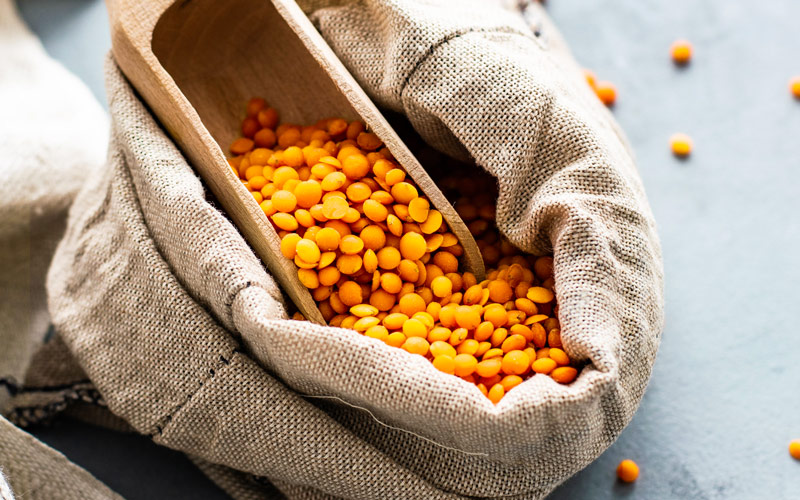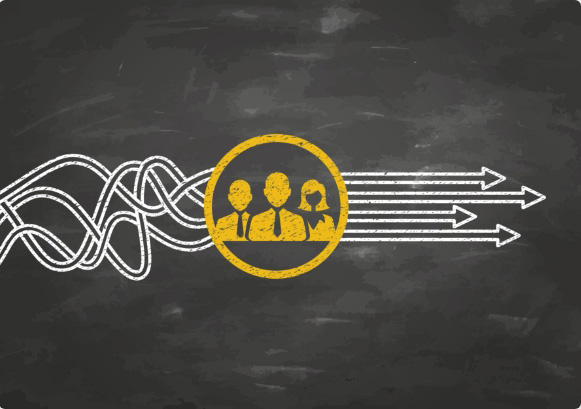The year ahead…?

If P45s were issued to forecasters for the effectiveness of their predictions, there would be few around at the start of 2021. Few, if any, were walking the wet markets of Wuhan in late 2019 to gain the inside track on what was the defining development of 2020 and perhaps the current decade.
I for one had never heard of the term Coronavirus before early 2020. And yet just ten weeks into the year the British supermarkets shelves were stripped of goods, notably loo roles, with the major chains introducing rationing. What a year in-between, quite unfathomable developments that have elevated the sales for the mainstream grocers, propelled demand for online food delivery and decimated the food systems of central business districts and travel hubs.
The scars of the Coronavirus pandemic will last well beyond 2020 for the British food system and so what should we be looking for as factors to condition the New Year?
At the start of last year the world was worried, (for a little while until bat bug from the east travelled to Europe, seemingly the first port of call was the skiing resorts of Italy), about the scope for Iran and the USA to do something foolish. Twelve months on, the crazy outgoing President of the USA decided to give the green light to smashing up his own capital rather than Tehran, ahead of his childlike departure from the White House.
It will be interesting to see what new President, Joe Biden, brings to international food systems. Will the sustainability and green agendas go up the priority list under his time in office, and what about Kamala Harris, who may be the President by the time the next election comes around in 2024? What, therefore, of US agriculture; how will Mr Biden see trade with China, the EU and the UK, bearing in mind that along with Mr Obama he suggested that the UK would be at the back of the line for a trade deal with the USA?
Such macro-machinations matter to the food system because China is one of the most influential markets on the planet, its stock piling of wheat is suspected to be the single most important factor behind the commodity’s current price elevation. What does Mr Biden think of the Sino-EU accord; will that bring him closer to Boris? And then there is US-UK trade, where food standards were the key sticking point, will there be movement on the ground on this matter; I sense not.
“…the food system has clearly become part of the nation’s infrastructure, which is likely to condition a wide spectrum of government policy on its organisation development in the future.”
Back on this side of the pond, the UK has sort of left the EU, an ‘agreement’ that has been chaotically implemented, with far too little time to digest and prepare for the new administrative arrangements. M&S shelves in Ireland and France are bare, Scottish fishermen fume and the food hauliers to Northern Ireland have Michael Gove’s condescending mush on many a dart board.
One could almost think that he waited until about two days before implementation day so that he could squirm away from any justifiable flack. In 2021 the food system of the British Isles, the UK and Ireland, never mind Continental Europe, where up to now the majority of the c40% of imported goods are sourced, needs to come up with workable ways and means, not just leaving it to the industry to sort out. At the same time, British farmers and growers, plus manufacturers need to open the dialogue with government about the future with respect to food security, optimal sourcing for the next decade taking the planet into account, including the rain forests and the high seas, as this all increasingly matters.
Trump, Brexit, and, oh yes, Coronavirus. Let us hope that we are in the darkest before the dawn territory on this terrible disease that has taken over one hundred thousand Britons, the deepest scar of all, whether they had pre-existing conditions or not. The virus sustains the aforementioned distortions to the industry and with lockdown 3.0 likely to last until the end of March, maybe Easter in April, the Food & Beverage channel must remain in hibernation and the supermarkets busy with online and offline demand.
Hopefully, the vaccination, where to be fair the British Government deserves considerable credit, will gradually release society from the constraints of Coronavirus for once and for all; although I do wonder if this will mirror the flu in needing annual jabs and so the state’s desire to develop domestic vaccination manufacturing capabilities; not trusting globalisation. It is unlikely to be the start of Q3 though before full scale lifting of restrictions will come through. So what will have changed since the pandemic started for the UK food system?
Well, the Food & Beverage channel will be a whole lot smaller with many casual dining chains downsized plus cafes, public houses and restaurants closed. The corollary of this reduced capacity can be expected to be higher prices and less promotional activity. Whilst so, working from home is likely to be the key mechanism driving the food system and so those Food & Beverage establishments in suburbs are likely to perform better than those in the aforementioned central business districts and travel hubs; if the average person works two days a week at home, that is a 40% reduction in commuting and office occupancy.
In the suburbs supermarkets and neighbourhood stores will be coming to terms with tough sales comparatives from spring 2021 (cost and cash flow comparatives are favourable), so stores with smaller baskets but maybe more visits, and so some trade will be lost to a return to the commute for some and the re-opening of the on-trade. However, the two-year sales stack for 2020 & 2021 will be stronger than we thought at the start of last year, whilst the online channel participation will have structurally moved to the right (7% to c15%), with no going back, so constraining the market access of the German discounters in the process; it took a bat bug from Wuhan to stymie the advance of Aldi.
More substantively, perhaps, the food system has clearly become part of the nation’s infrastructure, which is likely to condition a wide spectrum of government policy on its organisation development in the future; just as we saw the French prohibit the bid by Couche-Tard for Carrefour on food security grounds.
The British food system should be very proud of its work in 2020 and society should take a moment when rightly applauding and commending NHS workers to think about the butchers in major halls, the check-out workers, the lorry drivers and the like, folks that put teaching unions to shame, for their real contribution for feeding the nation and keeping it sane.
Predictions are clearly a mug’s game but so much has changed at the start of 2021 compared to 2020. One has to hope it is change that is for the better; if it is not too late, a very Happy New Year.
Dr Clive Black
Senior Policy Advisor
Coriolis Consulting
January 2021








